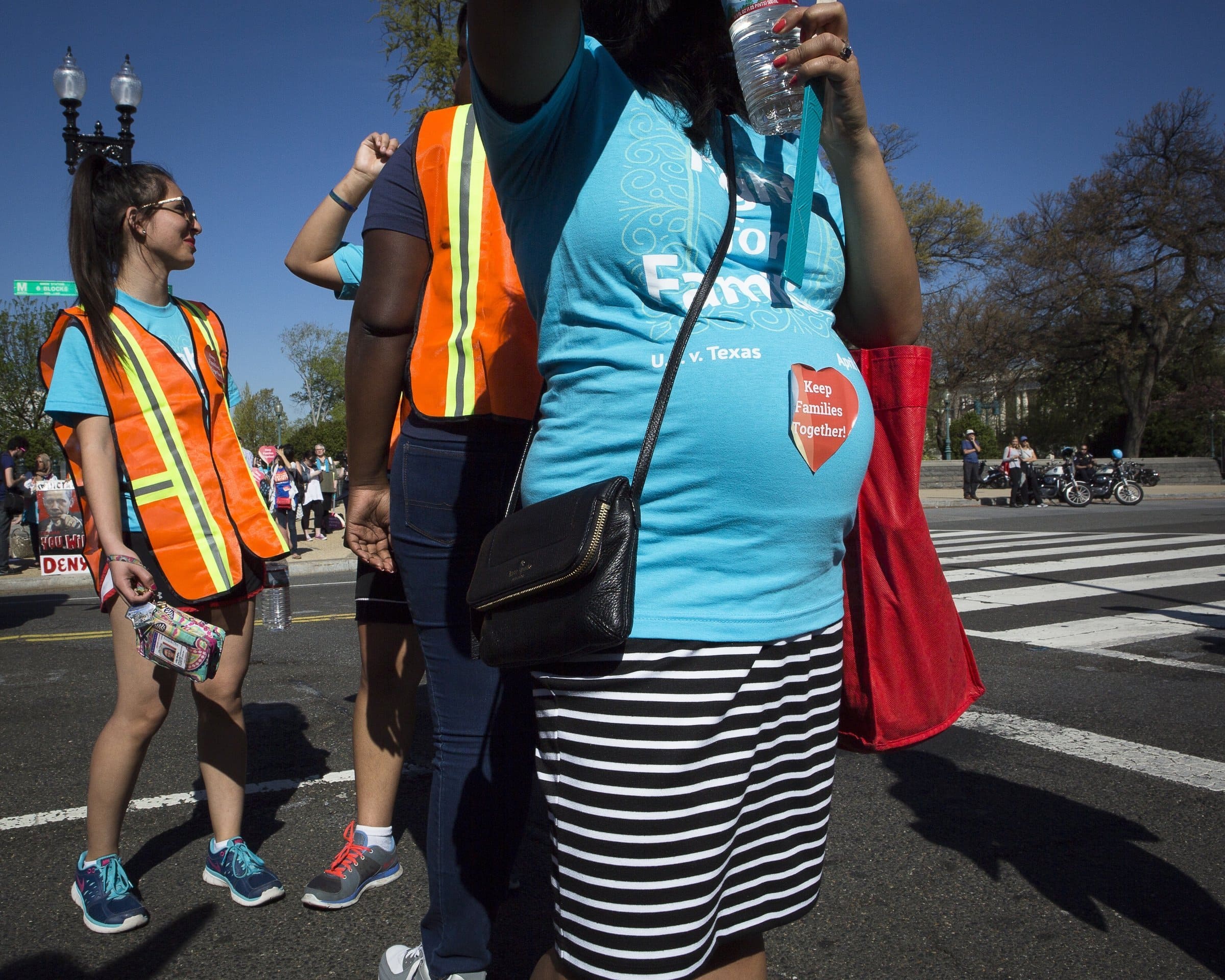Faithful question inclusion of abortion in law meant to protect pregnant workers
When first proposed, women’s rights advocates lauded the Pregnant Workers Fairness Act, which requires every employer with 15 employees or more to “reasonably accommodate” a worker’s “pregnancy, childbirth, or related medical conditions.” The law would give pregnant workers — many of whom must choose between their job and a necessary paycheck or their health or the health of their pregnancy — much-needed breaks, flexible hours, and relief from strenuous or dangerous activities.
But now many of those same advocates are questioning the law, which was amended by the Biden administration to feature proposed language in which “related medical conditions” include “having or choosing not to have an abortion.”
Some pro-life advocates such as Cheryl A. Riley, director of The Mercy House, which offers assistance to mothers and pregnant women, say the law has been hijacked.
“The law would help women who have little protection through their pregnancy, which is certainly needed. But keep abortion out of it,” said Riley.
Riley said many of The Mercy House’s clients are women who hold inflexible and physically demanding jobs and work up until they are ready to give birth.
“They are choosing to keep their babies,” Riley said. “The word ‘abortion’ should not be anywhere near a law that helps protect pregnant women.”
She added that including abortion language in a law expected to protect women and their unborn babies will “normalize” abortion.
Congress sought to help pregnant workers, not force employers to facilitate abortions, Alliance Defending Freedom Senior Counsel Julie Marie Blake said.
“The Biden administration is hijacking a bipartisan law that doesn’t even mention abortion to forcibly require every employer in America to provide ‘reasonable accommodations’ for their workers’ elective abortions,” Blake said in a statement released on Aug. 7. “The administration’s unlawful proposal violates state laws protecting the unborn and employers’ pro-life and religious beliefs. The administration doesn’t have the legal authority to smuggle an abortion mandate into a transformational pro-life, pro-woman law. Alliance Defending Freedom stands ready to continue defending unborn lives and to oppose this egregious federal overreach.”
Although the Pregnant Workers Fairness Act went into effect on June 27, regulations to carry out the law need to be voted on and finalized by the U.S. Equal Employment Opportunity Commission. The regulations will be formally published on Friday, Aug. 11, kicking off a 60-day period for pro-life and religious Americans to submit public comments to the administration.
The U.S. Catholic Conference of Bishops released a statement on Tuesday, Aug. 8, stating they had supported the law in its original form.
“We supported the bipartisan Pregnant Workers Fairness Act because it enhanced the protection of pregnant mothers and their preborn children, which is something that we have encouraged Congress to prioritize. The Act is pro-worker, pro-family, and pro-life,” The statement reads. “It is a total distortion to use this law as a means for advancing abortion, and the complete opposite of needed assistance for pregnant mothers. We are hopeful that the EEOC will be forced to abandon its untenable position when public comments submitted on this regulation demonstrate that its interpretation would be struck down in court.” According to the American Congress of Obstetricians and Gynecologists, an increasing number of pregnant workers are working later into their pregnancies. In 2021, over 80% of first-time mothers who worked during their pregnancy worked into the last three months before their child’s birth when accommodations are particularly needed.
Accommodations are especially necessary for pregnant workers who face complications or a high risk of complications, or for those who hold particular kinds of jobs. Congresswoman Jahana Hayes noted during the debate preceding the House Committee vote on the law, “women of color…are more likely to hold inflexible and physically demanding jobs that can present specific challenges for pregnant workers, such as home health aides, food service workers, package handlers, and cleaners. The labor-intensive requirements of these jobs sometimes require a temporary reasonable accommodation so women can remain on the job while protecting the health of themselves and their babies.”
The full list of accommodations included in the Pregnant Workers Fairness Act consists of the following: the ability to sit or drink water; receive closer parking; have flexible hours; receive appropriately sized uniforms and safety apparel; receive additional break time to use the bathroom, eat, and rest; take leave or time off to recover from childbirth; and be excused from strenuous activities and/or activities that involve exposure to compounds not safe for pregnancy.
Featured image: A pregnant woman is seen outside the U.S. Supreme Court in Washington in this 2016 file photo. On Aug. 8, Bishop Michael F. Burbidge of Arlington, Virginia, chairman of the U.S. Conference of Catholic Bishops’ Committee on Pro-Life Activities, objected to a proposed interpretation of the Pregnant Workers Fairness Act to include accommodations for obtaining an abortion. (OSV News photo/Tyler Orsburn, CNS)



